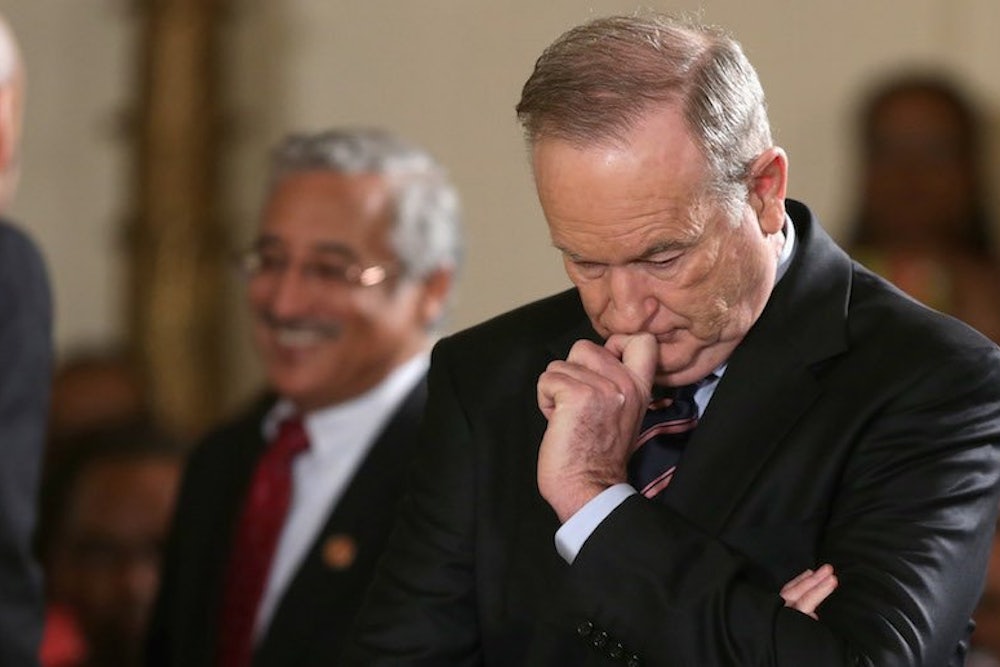It has been a depressing few weeks for integrity in matters of war. First, NBC News anchor Brian Williams was caught lying about being in an army helicopter that was shot down during the 2003 invasion of Iraq, resulting in Williams’s six-month suspension from the network. Next, Fox News host Bill O’Reilly came under fire (figuratively, that is) for apparently fabricating tales about his coverage of the 1982 Falklands War; he claimed he was in an "active war zone" and that he "survived a combat situation in Argentina during the Falklands war," but the evidence—and some of his former colleagues—says otherwise. Lastly, Veterans Affairs Secretary Robert McDonald apologized Monday for lying about serving in the Special Forces.
The web is replete with groups and individuals who seek to unmask military fakers. The problem is evidently so severe that in 2013 President Barack Obama signed into law the Stolen Valor Act, legislation that makes lying about military service awards for financial gain a federal crime. As the law suggests and various watchdog organizations attest, the majority of people who lie about military service or recognition are not celebrities but ordinary con men looking to establish themselves as trustworthy and respectable. For them, military service is shorthand for a certain kind of moral character most Americans are likely to respect.
The veneer of respectability afforded by military service may explain why television personalities and politicians invent phony war stories. But a pretense of service doesn’t require the invention of false stories of combat experience. What makes such stories so enticing to the likes of Williams or O'Reilly?
News in America has increasingly become infotainment—half factual information about the world’s events, half dazzling production and splashy narratives. Simultaneously, fewer and fewer Americans have ever seen battle; most of us only know war from what we see in film and television. So war itself becomes difficult to distinguish from entertainment. American Sniper, with its ambiguous moral commitments, is now the highest grossing American war film of all time, adjusted for inflation. Unlike popular war films about battles long past, American Sniper is set during the Iraq war, the effects of which are only beginning to ripple across our culture. Moreover, its story allegedly reflects the true-life story of its central character, sniper Chris Kyle. It’s somewhat true, like the news, but with a better script and pretty actors.
Which makes it hard for the news to keep up, even when you're as handsome as Brian Williams. Unlike most cinematic retellings of wars, actual wars are multifaceted, complicated, anti-climactic, and grim. When war is already a successful subject in mainstream cinema, news purveyors whose professions have become increasingly akin to entertainment are shrewd to play up war stories in relaying the narrative of the day. The trouble is that shrewdness, for some news professionals, has morphed into a calculated consideration of the entertainment value of war stories, regardless of their factuality.
Maybe Williams and O'Reilly are merely victims of the fallible human brain. Or maybe that hunger to entertain—and, perhaps, for a touch of glory—overwhelmed their professional duty to the facts. What, after all, is more exciting than a war story in which you're the star?
